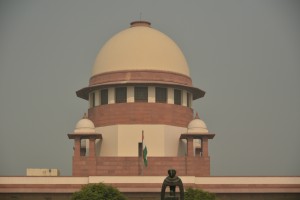Supreme Court: Refusing to interfere with the principle of capping adopted in the Notice Inviting Application-2015 (NIA) for allocation of spectrums in various areas, the Court said that the condition to put a cap and make a classification not allowing certain entities to bid is not an arbitrary one as it is based on the acceptable rationale of serving the cause of public interest. It was further said that in the matters relating to complex auction procedure having enormous financial ramification, interference by the Courts based upon any perception which is thought to be wise or assumed to be fair can lead to a situation which is not warrantable and may have unforeseen adverse impact.
The petitioners had argued that the NIA had stipulated capping and simultaneously allowed certain categories to bid for a lesser quantum to which the respondents had responded that the reason behind the same was that a minimum spectrum is determined to enhance the efficiency and capability of the service providers so that the arrangement can be beneficial to the consumers and they can avail requisite benefit and have better service. The licensees who do not have the specific quantum can bid for the balance so that the efficiency of service is enhanced. Accepting the reasoning of the respondents, the Court said that if a minimum is provided for a particular area or zone having regard to the necessity and the interest of the consumers, it subserves the larger public interest. The said stipulation might have affected the individual interest of certain categories of licensees or aspirants but that cannot weigh over the public interest.
Regarding the contention that some bidders have not been allowed to participate in respect of certain areas, the bench of Dipak Misra and P.C.Pant, JJ said that it has been done to curtail the monopoly and to encourage a broad based competition and further to allow certain entities who do not have the adequate spectrum so that there is augmentation of revenue as well as enhancement of efficiency in providing the service. It is a policy decision which subserves the consumers’ interest and it is extremely difficult to say that the decision to conduct the auction in such a manner can be considered to be mala fide or based on extraneous considerations. [Reliance Telecom Ltd. v. Union of India, 2017 SCC OnLine SC 36, decided on 12.01.2017]

